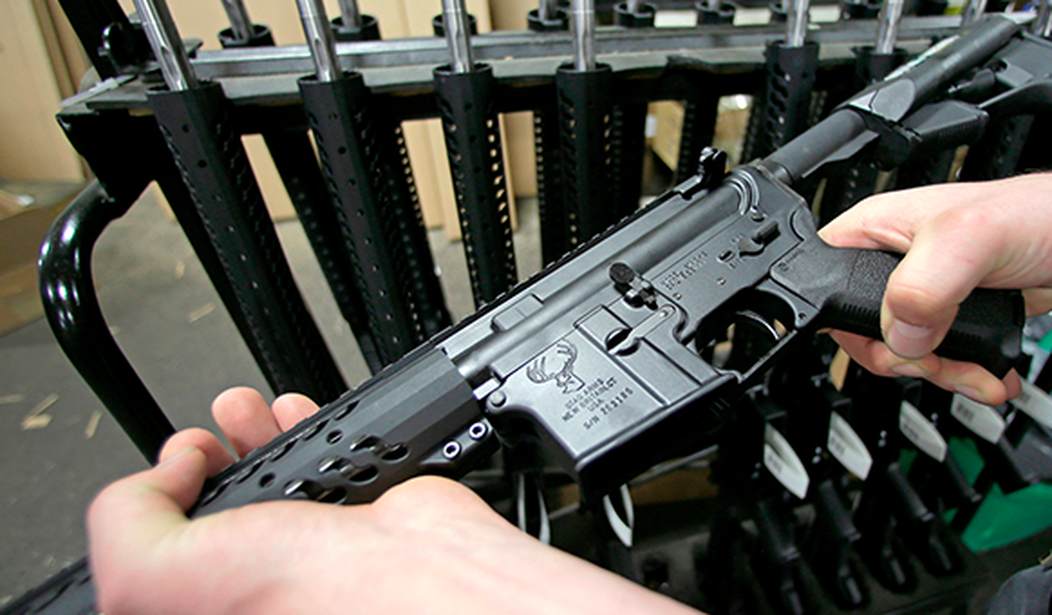Did a pro-2A law that went into effect last year prevent St. Louis police from seizing a rifle that was later used by the 19-year old suspect in a school shooting? According to an official with the police department, yes, but that excuse isn’t flying with many who’ve studied both federal and state law.
The 19-year old responsible for the shooting at the city’s Central Visual and Performing Arts and Collegiate School of Medicine and Bioscience had previously failed a background check when attempting to purchase a firearm at retail, most likely because his family had previously had him committed to a mental health facility. Despite that, when police were informed by the suspect’s family that he had obtained a rifle and they wanted it removed from the house, police instead allowed the firearm to be transferred to a third party. The suspect later regained possession of the firearm and used it in his murderous attack just a week or so after the family had called police, raising serious questions about the initial police response.
They say slight differences in state and federal gun possession laws tied their hands when Harris’ mother asked them to remove the weapon on Oct. 15. They also point to a controversial new law in Missouri that claims state statutes supersede federal law when it comes to gun possession.
“It is our belief that under existing state law SLMPD would have no authority to seize the firearm in question,” police Sgt. Charles Wall said in a statement.
But some experts side with Missouri Gov. Mike Parson, whose spokesperson said the state Legislature granted courts some control over gun possession “when an individual suffers from a mental health condition.”
Federal law declares that if a person has been “involuntarily committed” to a mental institution, they may not buy or possess a gun. Harris’ family has said that he was “committed” before the shooting. When he tried to buy a gun from a licensed dealer in St. Charles on Oct. 8, he failed the federal background check and was stopped from buying the weapon.
St. Louis police confirmed they were notified by the FBI that Harris had failed the background check, as a new federal law requires. The NICS Denial Identification Act went into effect Oct. 1.Police had also made multiple mental health-related trips to Harris’ home, where he lived with his mother. Records show officers were called to the home five other times in the past two years, including for a “crisis response,” a “violent and/or weapon” call and a suicide attempt.But Missouri law does not include language that prohibits a person who has been “involuntarily committed” from possessing a gun — it prohibits gun ownership only if the more serious step is taken of declaring a person “incompetent.”
Once someone is committed to a mental institution, they have a hearing before a judge, said Peter Joy, director of the Criminal Justice Clinic at Washington University. The judge then determines if the person is mentally incompetent, incapacitated or disabled.If Harris’ mother previously had him committed, as she said, that would have been enough for police to take the gun when they went to the home on Oct. 15.“If a person has been adjudicated in front of a judge and committed to a mental health facility, they cannot purchase guns and they cannot possess them,” said Kevin Jamison, a Kansas City-area attorney who specializes in firearm law. “This kid did seem to have some mental health problems, and his family could certainly have committed him to a mental health facility by bringing action in probate court.”Also, Jamison said, there’s nothing in the Second Amendment Preservation Act that would have prevented local police from removing a gun from the shooter. It deals exclusively with prohibiting the federal government from enforcing gun laws in Missouri, and the law also faces ongoing legal challenges questioning its legitimacy.
Roberts said the new state law might not have legally prevented an officer from taking Harris’ gun, but it has that effect in practice.“Every law has potential for unintended consequences, and this is one of them,” said Roberts, who “reluctantly” voted for the bill despite concerns about consequences for police officers and departments who enforce federal gun laws. “Police are going to err on the side of caution,” Robert said.









Join the conversation as a VIP Member